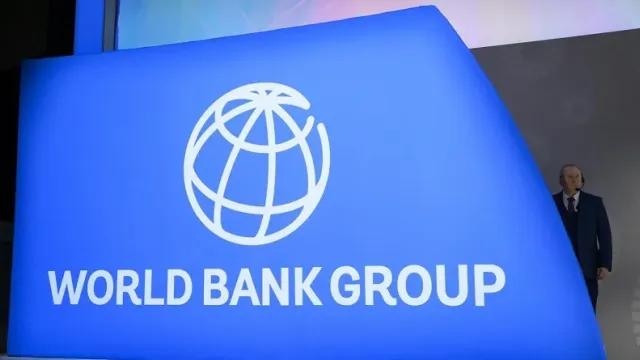World Bank extra billions to cover funding shortfall from failed Eurobond

World Bank extra billions to cover funding shortfall from failed Eurobond
The World Bank approved Kenya request to increase allocation under the Development Policy Operation framework (DPO) from $750 million to $1 billion to cover shortfalls after Kenya failed to raise a Eurobond.
The green growth funds, set to be disbursed after the Banks board approved the funding this week will be keen in replenishing Kenya’s forex reserves that have come under debt repayment pressures and shilling volatility.
World Bank said working closely with the International Monetary Fund (IMF) they determined Kenya needed access to additional funding given the country was unable to raise money through the Eurobond that has led to a buildup of financing needs.
Kenya failed to raise a new Eurobond in the commercial markets after prices soared on rising US Federal Reserve rates that have made it impossible for emerging markets to afford tapping funding forcing the country to rely on multilateral lenders.
Half of the new World Bank concessional loan will come from the International Bank for Reconstruction and Development (IBRD) with the rest from the International Development Association (IDA) and are low interest and long term helping Kenya stretch out the maturities of repayments and with flexible servicing terms and grace periods.
The dollars that are immediately available to the government will help ease dollar shortages in the country providing a buffer for falling reserves and stemming the decline of the shilling that has hit 138.5 units against the greenback.
“The operation is financed by IBRD and IDA, like the previous DPO. However, the current operation uses two distinct IDA windows: IDA Short Maturity Loan – 12 year maturity – 6 year grace at 2.73 percent and IDA Blend – 30 Year maturity – 5 year grace period at 2.73 percent,” World Bank officials said.
Read also: When taxes don’t make business sense
“As for IBRD, it is a “variable-spread” loan with a final maturity of 18.5 years, and the spread is 0.85 percent applied on top of Secured Overnight Financing Rate, which is currently around 5 percent,” the Bank said.
The Bank expects Kenya to implement long term reforms to create of fiscal space through revenue and expenditure measures to support fiscal consolidation, strengthening the debt management framework, and protecting pro-poor expenditures.
World Bank officials say Kenya has met prior targets for the funding including Privatisation Bill reforms, conflict of interest bills, climate finance reforms as well as financial inclusion reforms of the Hustler Fund.
The multilateral lenders expect Kenya to push through the contested Finance Bill to bring down the budget deficit radically and set Kenya on a path to surplus to begin bringing down the level of debt in the short run.
Kenya is also expected to sell off some of its state owned enterprises and reform governance and track the performance on the rest to reduce the burden on taxpayers to keep unprofitable companies running.
“The government has demonstrated its commitment to fiscal consolidation, which is key for reducing debt vulnerabilities and ensuring long-term growth sustainability,” said Keith Hansen, World Bank Country Director for Kenya.
“At the same time, the government implemented measures to protect the livelihoods of the most vulnerable, including through lifeline electricity tariffs that guarantee access to low-cost electricity for vulnerable households, protecting social safety nets, and creating opportunities for the poor through the Financial Inclusion Fund as part is its ‘Bottom-up Economic Transformation Agenda’.”
The World Bank boost comes after the IMF also approved an extra $1.1 billion (Kes152 billion) and expand the Fund programme by another two years, after the fifth review this month.
The additional resources bring total programme loans to $3.52 billion, funds which will ease Kenya’s debt payments and ease pressure on the shilling by providing dollar reserves which have declined to 3.5 month import cover.
In December last year IMF again expanded Kenya’s debt facility after the 38-month IMF program signed in February 2021 was increased from $2.34 billion to $2.416 billion in December to cover external financing needs on droughts and challenging global markets.
Both the World Bank and the IMF have been giving more resources to Kenya with the World Bank having given the country an enhanced Kenya’s loan kitty by Kes32.3 billion ($250 million) bringing the expected disbursement from its previous Development Policy Operations (DPO) facility to Kes129 billion.



